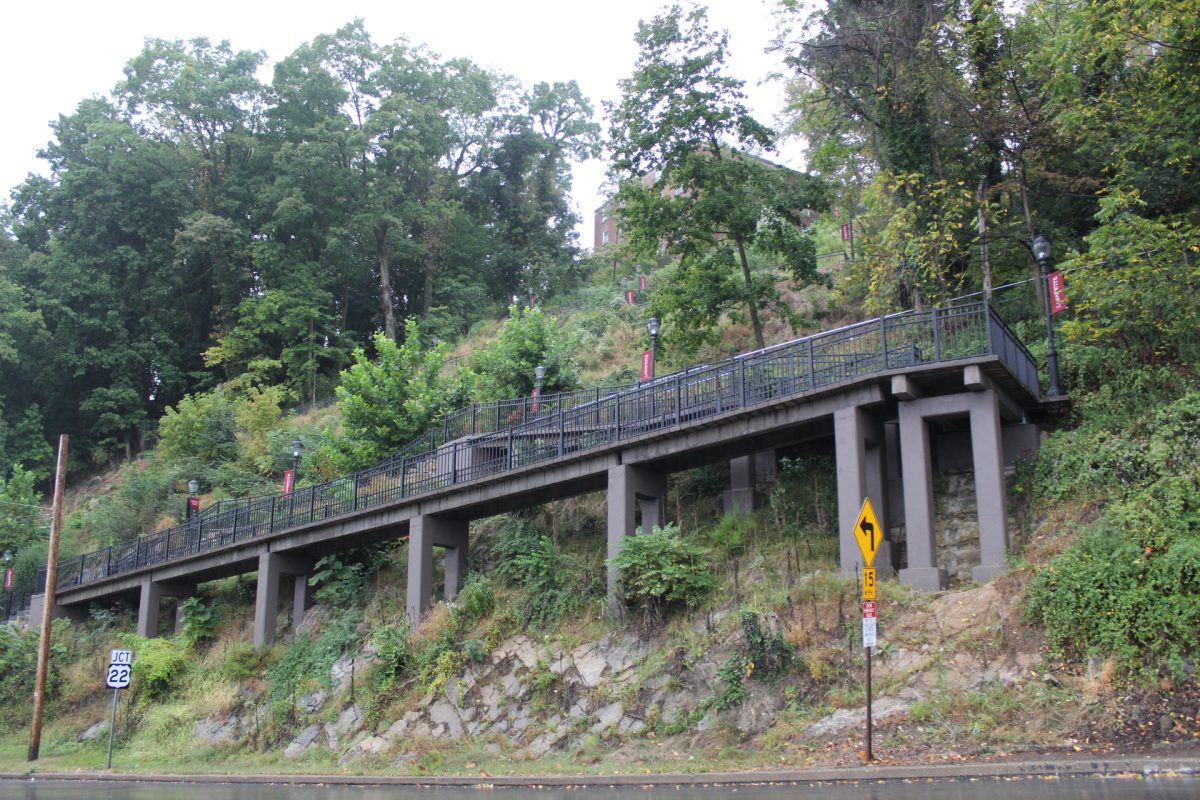Lafayette College received an order from the City of Easton to halt the construction of its $6 million escarpment trail in the summer of 2023; the order came after the college deforested the College Hill hillside without permission. Environmental concerns over the health of the hill remain despite commitments to address the problem made last spring.
While some areas of the hillside have improved since then, there are still several areas showing signs of erosion, according to Ian Kindle, the chair of the Easton Environmental Advisory Council.
In reference to a specific area near the top of the hillside, Kindle described how one could “see erosion impacts.” He said the objects like rocks, soil and mulch “don’t want to stay on a slope like this without comprehensive plantings or something to really, really retain it.”
However, one of the bigger erosion areas that was of concern to the Environmental Advisory Council is recovering well, according to Kindle.
“I think this one is probably the best-looking one so far,” he said of a previous area of concern, located on one of the curbs of the hill. “The netting and soil that they put in here and the seeding seems to have taken pretty well.”
“Lafayette College and the City of Easton collaborated and agreed on a landscaping plan that was completed in the spring of ’24 and addressed the City’s environmental concerns,” wrote Emily Papp in an email, who coordinated the trail’s construction with Aegis Property Group, in response to specific questions. “As with all of campus, Lafayette College continues to monitor and maintain all landscaping.”
Kindle explained that the approach to mitigating the concerns is a two-part approach: planting native seeds to hold down sediment and prevent erosion while using netting for security. The college is using a seed mix that contains both grasses and other native plants, Kindle said.
“The idea being that the annual ryegrasses pop up and they kind of hold everything in place so that the native seeds can gestate,” Kindle said, noting that there seemed to be a lack of native plantings besides the grasses, but that such a process could take several years to be fully effective.
“A lot of stuff was moved around and it’s taking time for new plants, new vegetation to take root,” college President Nicole Hurd said during the town hall strategic plan announcement on Wednesday.
This loss of native vegetation has allowed for invasive species to grow, Kindle warned. While the city has recommended that the college try to address this, Kindle acknowledged that “if you’re working on a slope like this, sometimes the only option is like broad, broadcast pesticide spray.”
In a meeting between city officials and Lafayette representatives last year, it was determined that direct reforestation via planting trees was not feasible because the planted trees would likely not survive on the hill’s harsh conditions.
According to Kindle, the new hill forestation approach the city recommends is to “train” the handful of juvenile sycamore trees that have taken root in the stumps of felled trees, ensuring that they will survive and grow to full size. However, the college has not begun this process.
“We have a number of faculty and staff and others looking at that space to make sure we can make it as attractive and safe as possible,” Hurd said of the escarpment trail at the town hall.
“We are absolutely committed to making sure that we make that escarpment trail accessible,” she continued.
Rob Christopher, the city forester, declined to comment, deferring all questions to Kindle.
























































































































